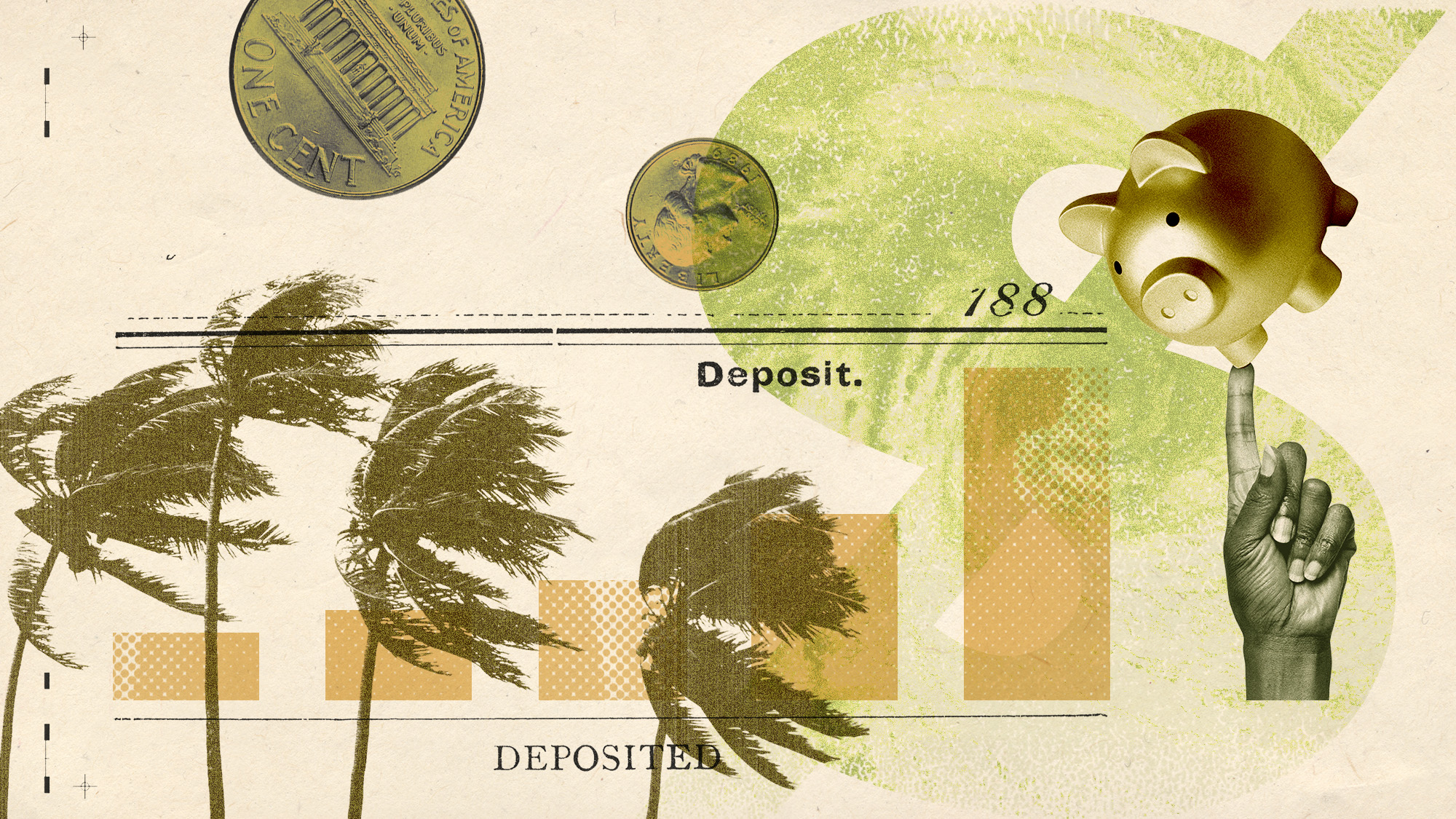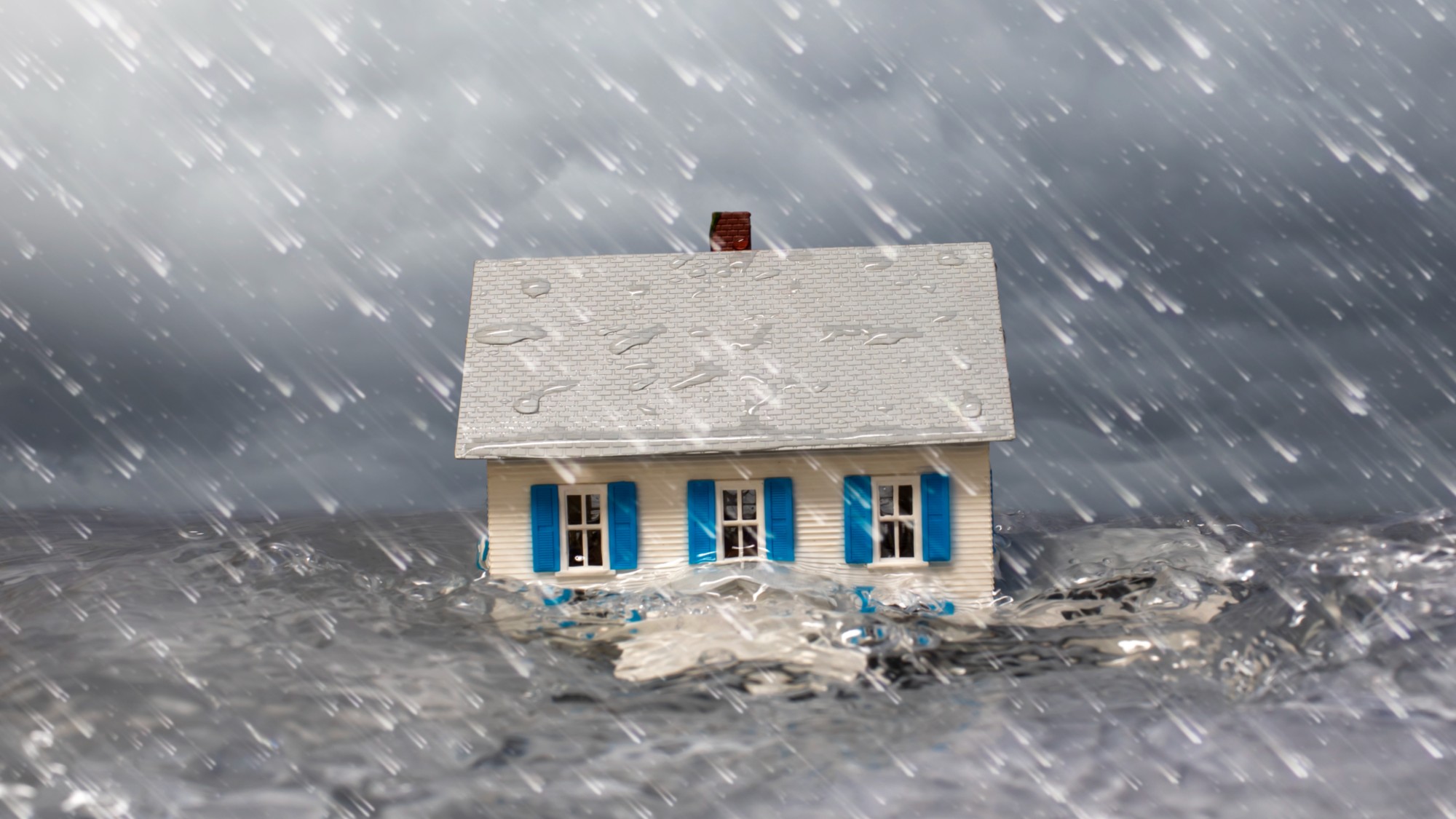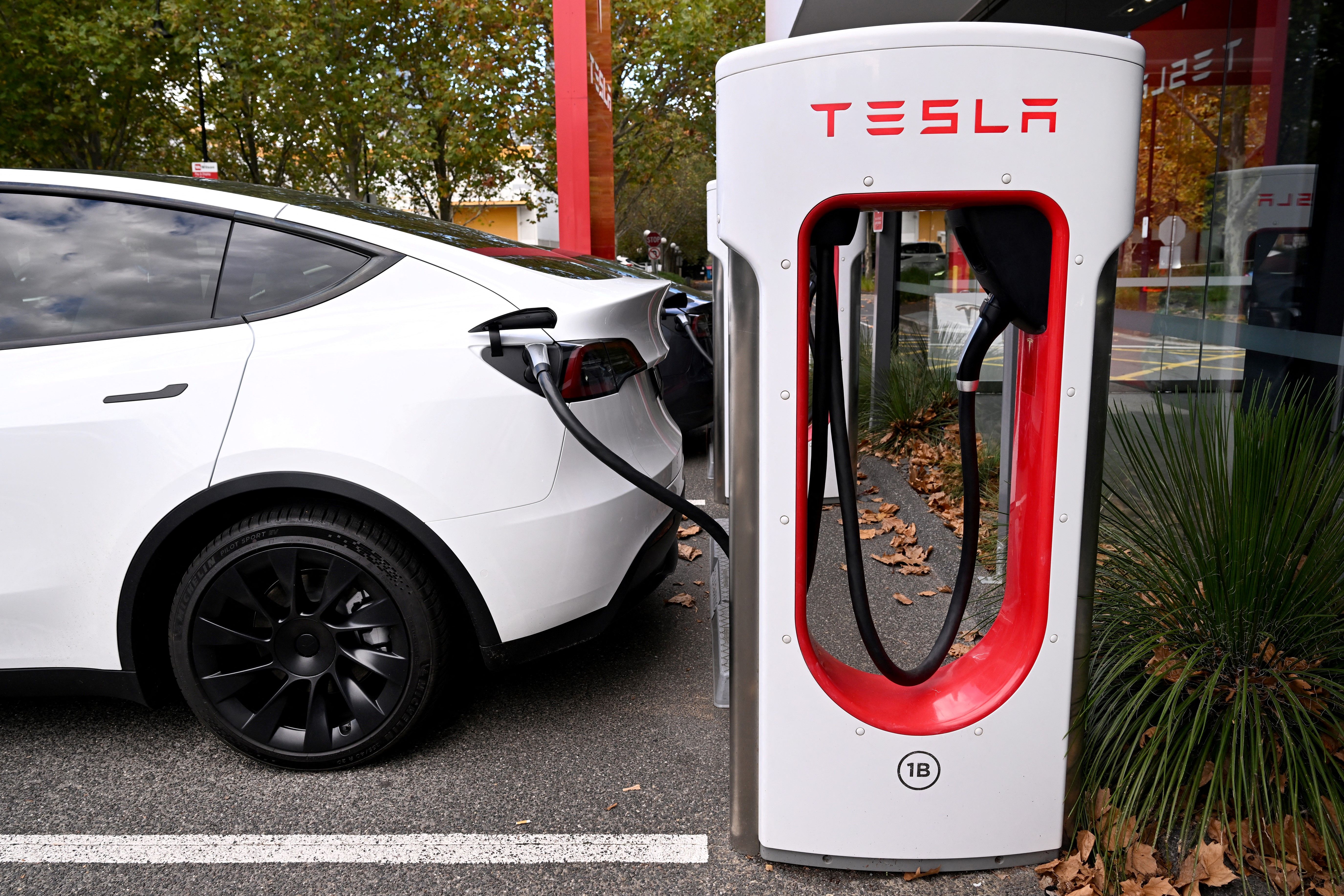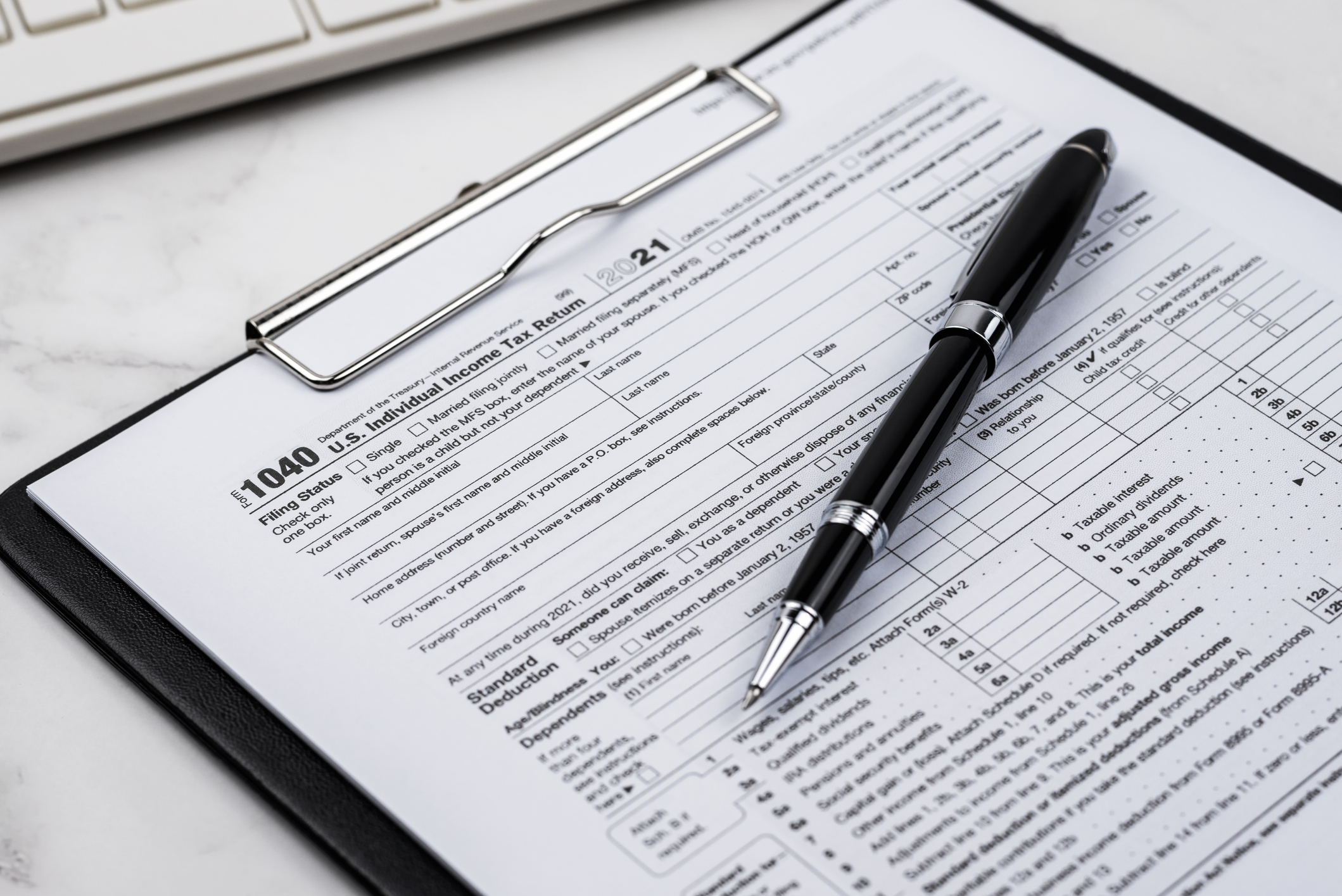Moving towards a zero-carbon future
The global and national climate change goals and how they will affect us

Whatever your political leanings, there can be little doubt now that climate change is one of the biggest challenges our world will face over the next few decades. Most climate scientists agree that “anthropogenic” (man-made) climate change is in motion. The only disagreement is over exactly how severe its near-to-long-term effects may be, as such scenarios are difficult to model and dependent on many assumptions.
The UN's stance on climate change
The UN’s Intergovernmental Panel on Climate Change (IPCC) has warned that in order to limit global warming to 1.5°C above pre- industrialised levels – and thus avoid the more drastic consequences of climate change – global carbon emissions must hit net-zero by 2050.
The Week
Escape your echo chamber. Get the facts behind the news, plus analysis from multiple perspectives.

Sign up for The Week's Free Newsletters
From our morning news briefing to a weekly Good News Newsletter, get the best of The Week delivered directly to your inbox.
From our morning news briefing to a weekly Good News Newsletter, get the best of The Week delivered directly to your inbox.
“Human activities are estimated to have caused approximately 1.0°C of global warming above pre-industrial levels, with a likely range of 0.8°C to 1.2°C,” according to the IPCC’s 2018 report. “Global warming is likely to reach 1.5°C between 2030 and 2052 if it continues to increase at the current rate.”
The IPCC notes that impacts to land and ocean ecosystems from global warming have already been observed. “Warming greater than the global annual average is being experienced in many land regions and seasons, including two to three times higher in the Arctic,” its 2018 report reads, with warming being “generally higher over land than over the ocean.”
The potential risks from climate change include the irreversible loss of ice sheets in Greenland and a subsequent rise in sea levels; widespread flooding, with certain areas of the world including Florida and parts of Asia at risk of submersion; extreme heat in regions such as the Middle East; drought, cyclones, dramatic changes to ecosystems, species loss, disease and mass migration.
So far, 195 nations, including the UK, have signed up to the United Nations Framework Convention on Climate Change’s Paris Agreement, agreed in 2016. This aims to limit the increase in global average temperature to less than 2°C above pre-industrial levels and to pursue measures that would limit the increase to 1.5°C to mitigate some of the most devastating impacts of climate change.
Given that governments across the globe (besides the US which, under President Donald Trump, will officially withdraw from the Paris Agreement in 2020) are taking the matter seriously, and that consumers are increasingly concerned about climate issues when it comes to choosing goods and services, businesses will need to plan ahead for major changes as we transition towards a zero-carbon future. So what will this look like?
Decarbonising the economy
- Podcast
Beyond carbon-neutral: the CO2-negative business
Listen to podcast - Insight Report
Funding the zero-carbon future
Download now - Advertisement Feature
Harnessing natural energy in the Outer Hebrides
Read case study
The UK government's current climate change goals
In June 2019, one of outgoing prime minister Theresa May’s final acts was to make the UK the first member of the G7 group of nations to legislate (via the Climate Act 2019) for net-zero carbon dioxide emissions by 2050. Britain is one of the first major world economies to commit to this goal – France has proposed similar legislation and Finland and Norway have committed to make the transition earlier, in 2035 and 2030 respectively.
In part, these rapid shifts are expected to be achieved through the use of carbon credits, even though the UK government’s Committee on Climate Change (CCC), chaired by John Gummer, advised May not to do so. Carbon credits allow polluting nations to offset carbon emissions by purchasing credits accumulated by less-polluting countries. However, critics argue that this does not deter rich nations from emitting excess greenhouse gases or encourage them to develop more sustainable practices – instead, it merely passes the responsibility onto poorer developing nations, who are arguably less well-placed to make the radical changes needed.
A blueprint for radical change
Yet even if carbon credits are used, the CCC’s recent report into achieving net-zero emissions in the UK reveals the steep mountain that must be climbed in a short space of time – just 30 years – in order to deliver a zero-carbon economy. Almost every area of our lives – our lifestyles, diets, homes, buildings, businesses and public infrastructure – will have to be transformed, leaving life in Britain in 2050 looking quite different to today.
Few areas will be impacted as directly or as obviously as power generation – we need to move from a reliance on fossil fuels towards much greater use of clean, renewable energy. The good news on that front is that considerable progress has already been made by the UK in reducing carbon emissions linked to power generation. In October, energy regulator Ofgem noted that emissions in Britain have fallen by 42% since 1990. That’s more than in any other major developed economy, and it’s mostly due to the near-eradication of coal usage for electricity generation. Government policies, such as the carbon price – which penalises coal-fired power plants – and the growth in renewable technologies, such as wind and solar power, have driven this shift.
Today, transport represents the biggest single source of carbon emissions, although even these fell in 2018 due to a rise in electric vehicle use. And according to Ofgem, the energy sector has beaten all others in cutting emissions, reducing them by 50% between 2010 and 2018, with the transport sector managing just a 2% reduction over the same period. However, Ofgem also warns that progress has slowed in recent years. In 2018, the UK’s greenhouse gas emissions fell by just 2.5%, down from a 3% drop in 2017 – the smallest reduction seen since 2012.
The CCC notes that while net-zero carbon progress thus far has been significant, domestic emissions will need to fall a lot faster than they currently are to meet the new targets introduced by May. “Meeting future carbon budgets and the UK’s 2050 target to reduce emissions by at least 100% of 1990 levels, will require reducing domestic emissions by at least 3% of 2018 emissions, that is 50% higher than under the UK’s previous 2050 target and 30% higher than achieved on average since 1990,” says the committee in its annual assessment of the UK’s progress in cutting emissions. “This is an indication of how substantial the step-up in action must be to cut emissions in every sector.”
What are the challenges?
Public engagement is one major hurdle. The CCC’s most recent progress report expresses concern over whether the government can convince the public to accept the dramatic lifestyle changes that will be required to prevent the more serious consequences that could result from extreme man-made climate change. Another obstacle is the UK’s capacity for rapid uptake of new technologies.
The CCC recommends, for example, the widespread installation of heat pumps and other green technologies to heat homes – but it also admits that as yet there are not enough qualified installation engineers to facilitate the required ramp-up in scale. Currently, there are around 20,000 heat pump installations a year in the UK versus more than one million gas boiler installations.
A further issue is that the most carbon-intensive businesses are also those that will find it hardest to make the transition. Of course, few industries are likely to be left untouched by the move to a zero-carbon economy. However, certain sectors use far more energy than others and are designated by the government as “energy intensive” industries.
Traditional manufacturing – businesses involved in the production of aluminium, cement, steel, fertiliser, chemicals, industrial gas production and paper – tends to be energy intensive, with electricity costs that range between 13% and 55% of gross value added.
These businesses are often owned by international companies whose investment needs are spread across the globe, and who therefore may have limited budgets for capital spending in the UK. Plus, their plants also tend to be situated in economically-deprived areas with high unemployment and low standards of living, where the jobs will be difficult to replace if the industry dies.
Transport is another key area. Currently, there are only 210,000 electric cars in the UK. Just 1% of the population owns an all-electric car, while only 2% own hybrids. The purchase price of these vehicles remains a barrier, while government subsidies for electric cars have been cut, and there is still a shortage of charging points. It will take time for the market to mature and for the price of electric vehicles to fall, and to become more accessible to the masses.
However, electric cars have an advantage in that new diesel and petrol vehicles are set to be outlawed in the UK by 2040. Indeed, under new proposals by the Conservative government, the ban could be accelerated to 2035 to bring Britain into line with European neighbours, such as Sweden, Denmark, the Netherlands and Ireland, which plan to outlaw the vehicles from 2030. Similarly, Scotland plans to ban new petrol and diesel vehicles from 2032.
To find out more about funding the zero-carbon future, download our in-depth report
A free daily email with the biggest news stories of the day – and the best features from TheWeek.com
-
 How to Get to Heaven from Belfast: a ‘highly entertaining ride’
How to Get to Heaven from Belfast: a ‘highly entertaining ride’The Week Recommends Mystery-comedy from the creator of Derry Girls should be ‘your new binge-watch’
-
 The 8 best TV shows of the 1960s
The 8 best TV shows of the 1960sThe standout shows of this decade take viewers from outer space to the Wild West
-
 Microdramas are booming
Microdramas are boomingUnder the radar Scroll to watch a whole movie
-
 Why the catastrophe bond market is growing
Why the catastrophe bond market is growingThe Explainer The bonds pay for climate change disaster damages
-
 Why are home insurance prices going up?
Why are home insurance prices going up?Today's Big Question Climate-driven weather events are raising insurers' costs
-
 Christmas trees: losing their magic?
Christmas trees: losing their magic?In the Spotlight Festive firs are a yuletide staple but are their days numbered?
-
 The ocean's blue economy is growing. Can the tide continue to rise?
The ocean's blue economy is growing. Can the tide continue to rise?The Explainer The big blue is bringing in the green
-
 What is greenhushing?
What is greenhushing?Speed Read A new trend has companies keeping quiet about what they're doing to combat climate change
-
 Why fashion may never be sustainable
Why fashion may never be sustainableSpeed Read And should we even believe it if we see it?
-
 Autos: Fast-tracking the electric future
Autos: Fast-tracking the electric futurefeature Will the transition to electric vehicles go smoothly?
-
 Climate change is extending the tax season
Climate change is extending the tax seasonSpeed Read